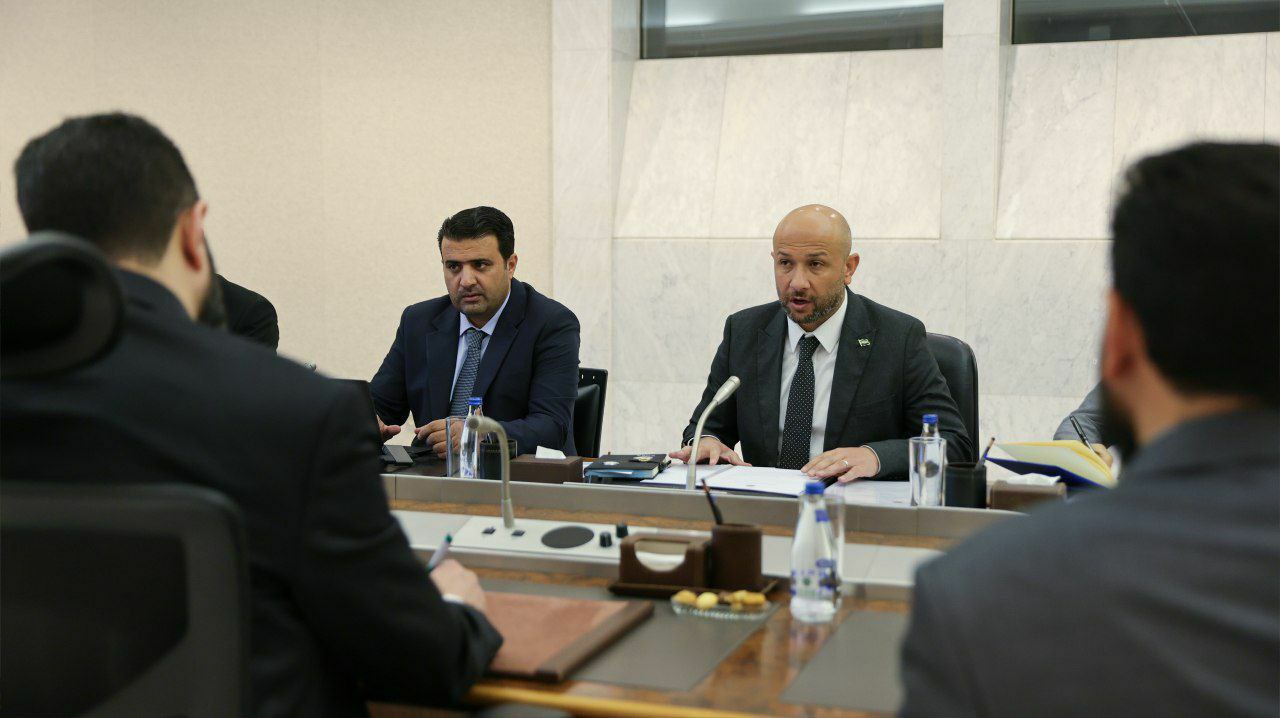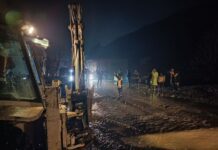
Syria’s Ministry of Emergency and Disaster Management announced a series of sweeping initiatives this week aimed at transforming the country’s emergency response capabilities, including the launch of a new mobile application called “Absher.”
The announcement came during a consultative meeting yesterday, May 6, the first of its kind, between Minister Raed al-Saleh and officials from various institutions and organizations. The session, reported by state-run SANA, focused on developing a national disaster response plan and an early warning system.
Saleh introduced the Absher app as a tool for citizens to report emergencies using text messages, voice recordings, or video calls. By registering personal information and geolocation, users can request assistance more efficiently, streamlining communication during crises.
Laying the Groundwork for National Safety
Speaking during the meeting, Saleh highlighted a broader strategy to overhaul how Syria prepares for and reacts to emergencies. In 2023, the country experienced 593 earthquakes, underscoring the urgency of enhanced seismic monitoring and early warning capabilities.
Saleh emphasized that the ministry’s vision, as laid out in a prior interview, aims to establish a comprehensive national system that reduces risks and strengthens Syria’s resilience to both natural and man-made disasters. The ministry will employ tools such as seismic detection, remote sensing, and climate monitoring to anticipate and manage potential threats.
“Our goal is to create a system that is proactive, not reactive,” Saleh said. “We want to make Syria safer, more prepared, and capable of responding rapidly to emergencies.”
Clearing the Way: Mine Removal and Forest Fires
The ministry is also in talks with President Ahmad al-Sharaa to create a national center for clearing landmines and war remnants, according to Al-Watan newspaper. This initiative targets one of the lingering dangers from Syria’s prolonged conflict and aims to accelerate the recovery of affected areas.
The ministry will also address the country’s vulnerability to forest fires. Only 20 percent of forestry units are currently operational, and many regions—especially older neighborhoods—lack proper firefighting systems. He noted that while some fires were deliberately set, others were the result of neglected infrastructure and limited access to firefighting equipment.
Defining a New Role in Emergency Services
The minister stressed that responsibilities will differ significantly from those of the Civil Defense, commonly known as the White Helmets. While the new ministry will take over around 70% of official emergency and civil defense functions, he said the White Helmets would continue to focus on community-based efforts, such as war remnants clearance and civil empowerment projects.
With these reforms, Syria appears poised to replace fragmented response efforts with a coordinated, data-driven system—marking a significant step toward nationwide disaster preparedness.








